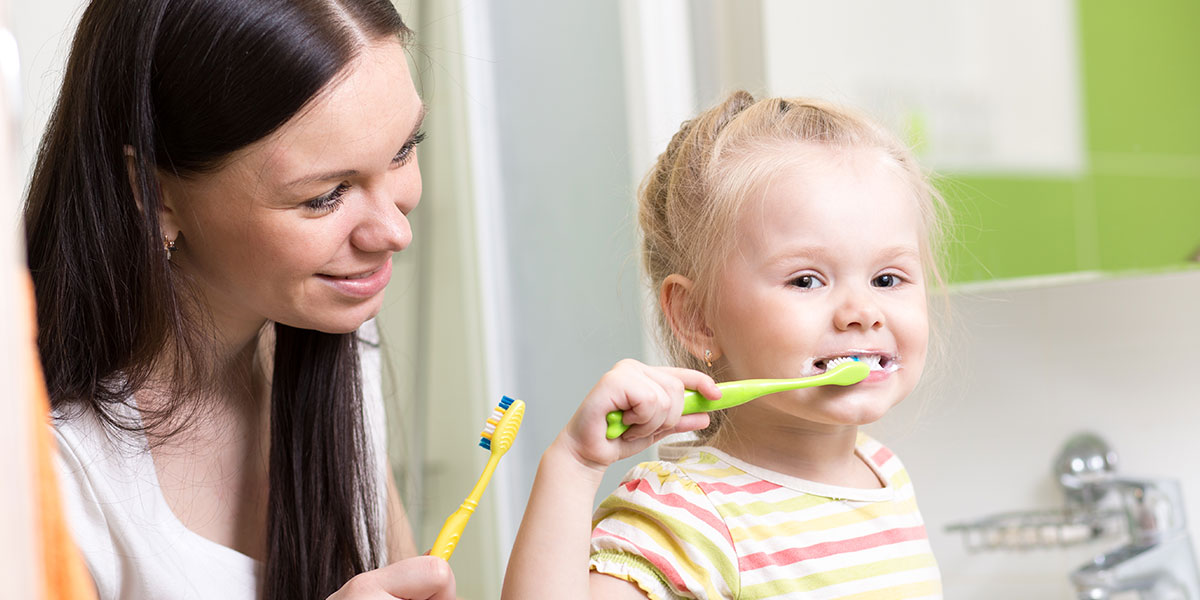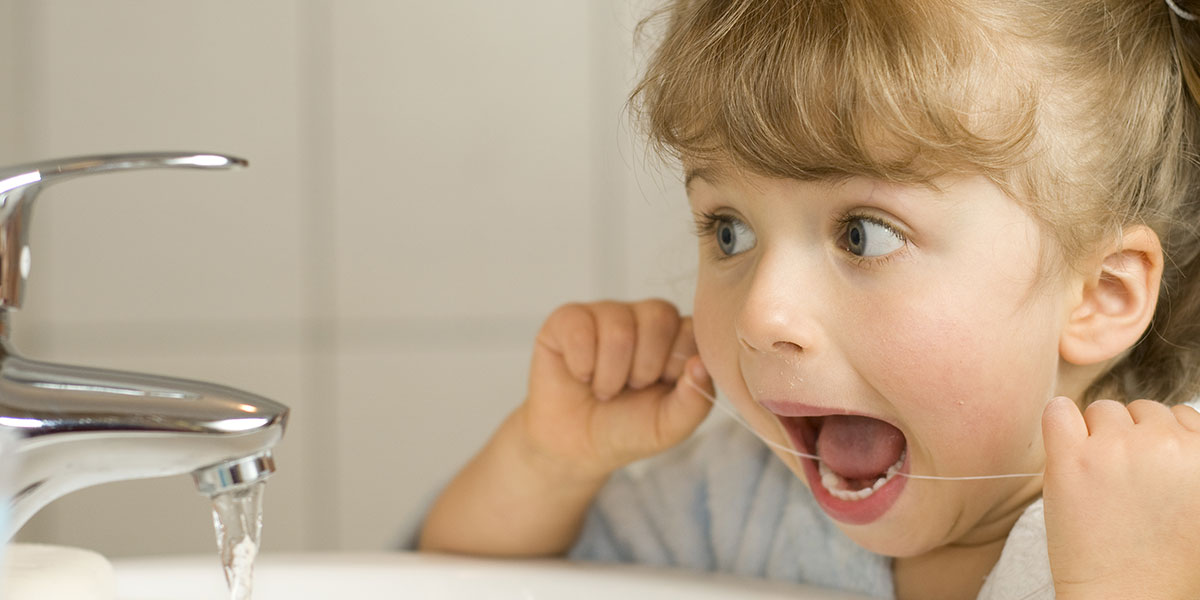0-2 years
Some babies are born with oral restrictions such as tongue and lip ties, which impact on their ability to feed efficiently, and can cause pain during breastfeeding. When the normal anatomy is restricted, early intervention can help preserve the breastfeeding relationship, and help your baby thrive.
For most babies, the first teeth come through around 6-8 months of age. Early dental care can include simply wiping the gums with a soft cloth after feeding your baby. As the teeth erupt, you can start brushing with a small, soft toothbrush. This helps familiarise the baby to brushing as an everyday habit.
Generally, it’s recommended to see a dentist when baby’s first teeth are breaking through,
or by the first birthday.
During the first two years, your child will transition from breast or bottle, to eating solids. A surprising amount of hidden sugars can be included in our everyday foods, which can impact on your child’s risk of getting decay. Creating healthy food patterns at home and maintaining healthy food choices are critical in keeping your child’s teeth healthy.
In their first years, children are clumsy and often have little accidents. Injuries to baby teeth are common and may require urgent attention. It’s important to get injuries assessed, as trauma to baby teeth can cause lifelong damage to permanent teeth.
3-5 years
By the age of three years, most children will have all their primary (baby) teeth in place. Statistics show that almost half of all children have their first cavity before their first day of school, so healthy eating habits and regular brushing are important.
Low concentration fluoridated toothpaste is usually recommended, using the amount of a small pea. Flossing can also be introduced. Whilst children of this age are keen to exert their independence, they still require close supervision and assistance to ensure cleaning is done regularly, and thoroughly.
Sucking habits including thumb, finger, and dummy, should be stopped by this age to prevent facial development issues and bite problems (buck teeth for example) developing.
Dental injuries are very common in this age group. It’s recommended to see a dentist as soon as possible after an injury, as it can affect the developing permanent teeth.
In case a baby tooth is lost early, a space maintainer may be required to keep the space open for the future adult teeth, and prevent the need for orthodontics in the future.
6-11 years
During this age, children are starting to get their permanent teeth. At this age, adult strength toothpaste should be used. Only a pea sized amount is necessary. Tooth brushing can start becoming your child’s responsibility, with regular checks by an adult. As the spaces between teeth close, flossing is also recommended.
Growing independence can also mean a wider exposure to different foods and drinks, creating more challenges to maintaining healthy teeth. Fissure sealants in newly erupted permanent teeth can help prevent decay in these teeth.
As the permanent teeth appear, early interceptive orthodontic treatment may be required to guide these permanent teeth into the proper position, and prevent more complicated orthodontic needs in the teenage years.
Sporting activities can lead to increased risk of trauma to the permanent teeth. Custom mouth guards can provide the most comfortable protection for the new permanent teeth.
12-16 years
At this age, all the permanent teeth are through, and maintaining them for the rest of your child’s life is important. Teenagers start exerting their independence with their increasing social activities, and can have a more diverse range of foods and drinks. This can mean that healthy and well-maintained teeth are now at increased risk for holes. Sealants are still very relevant in this group, especially with the eruption of the last set of molars.
Orthodontic treatment is commonly considered at this age group, and recognising the prime
time to commence treatment is a priority. Orthodontic treatment can increase the risk of dental disease, and it’s important to coordinate with the general dental needs whilst undergoing orthodontic treatment.
With many teenagers being involved with sports, dental injuries are common. Whilst the “boil and bite” mouth guards are easily accessible, they lack the proper fit, making them uncomfortable to wear and providing poor protection from dental injuries. Custom made mouth guards ensure proper fit and much better protection from severe dental injuries.
Wisdom teeth can start causing trouble in the later teenage years, and early detection of troubles ahead can allow for proper planning and timing of treatment that may be required.


